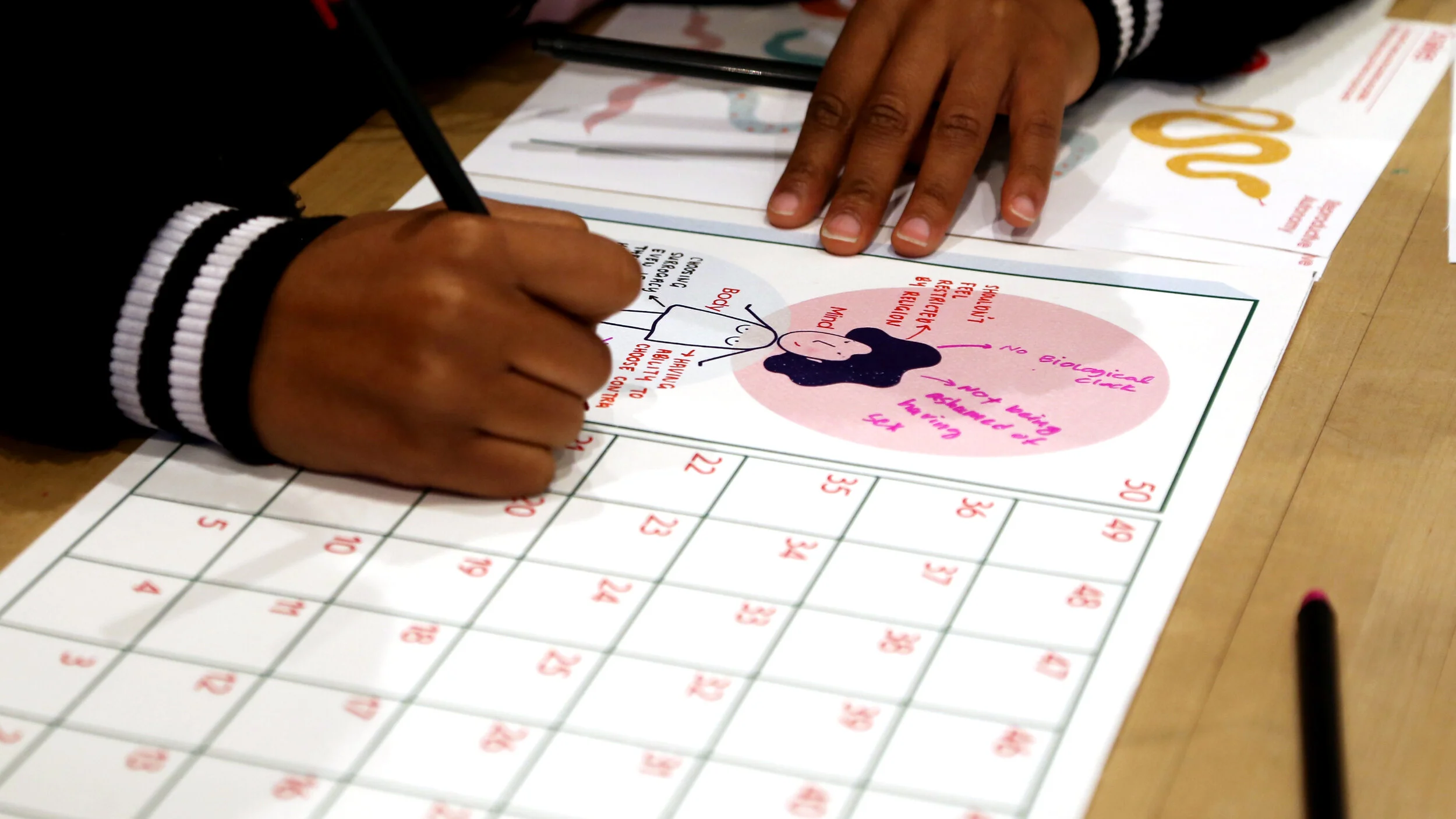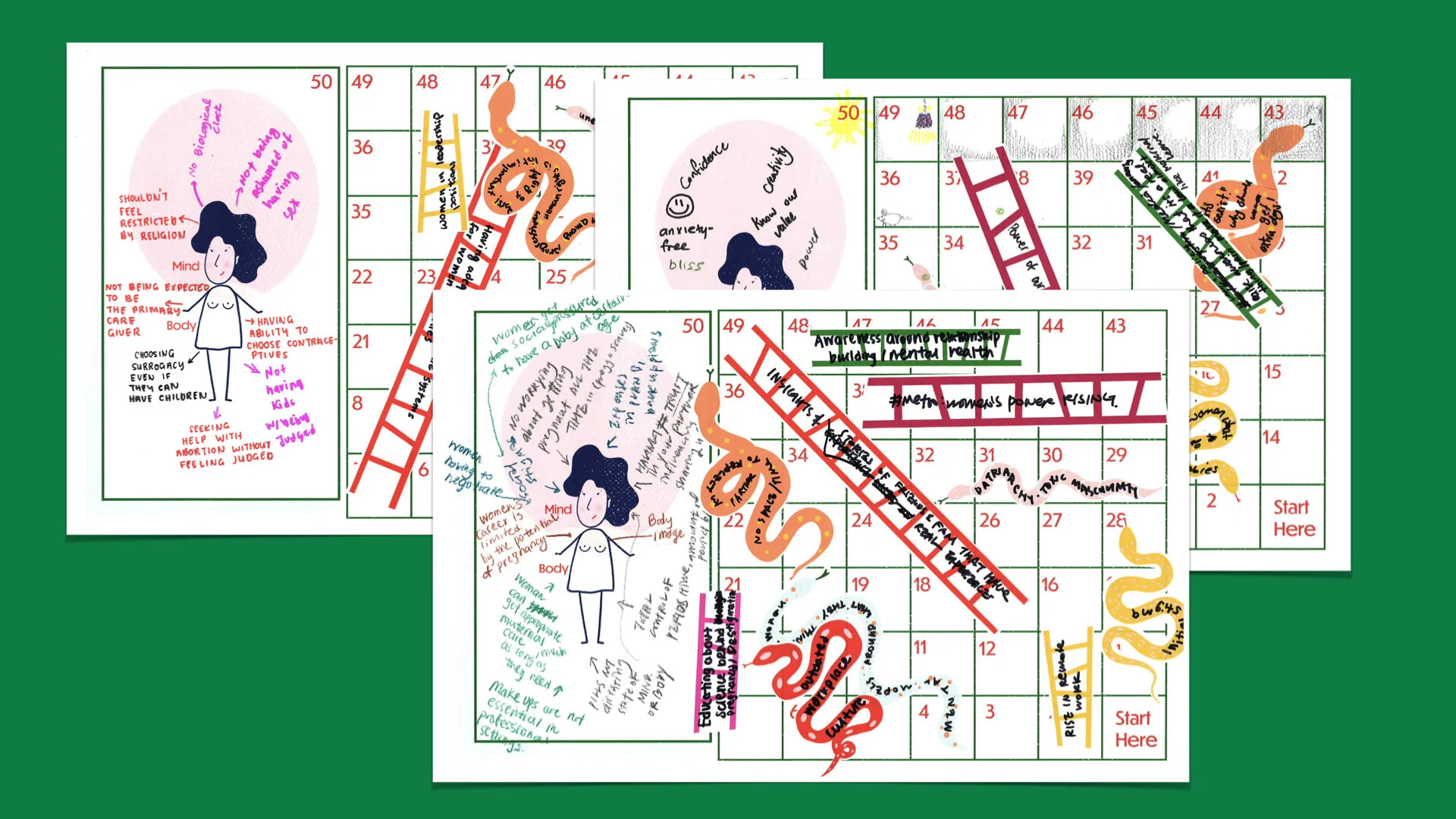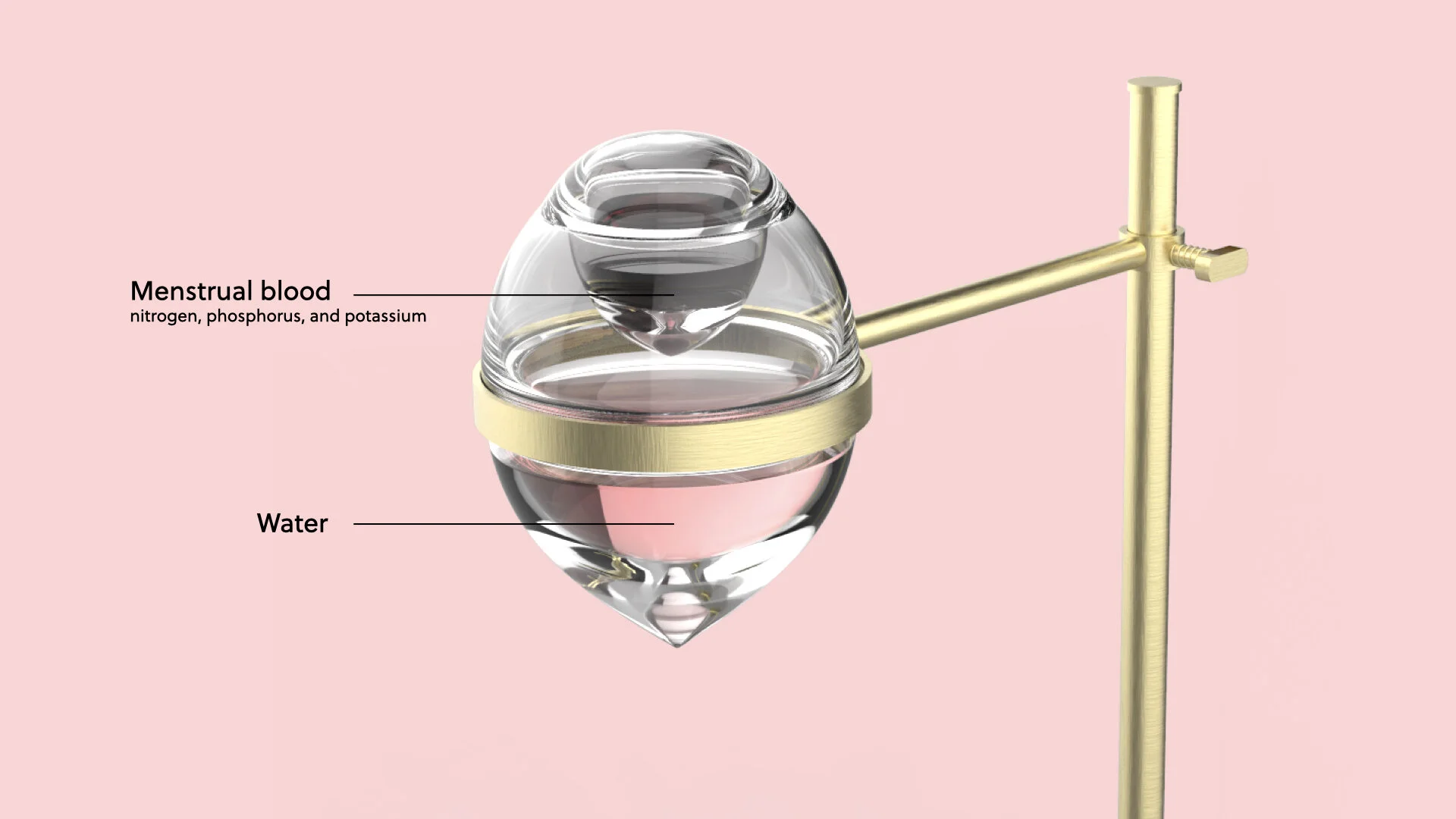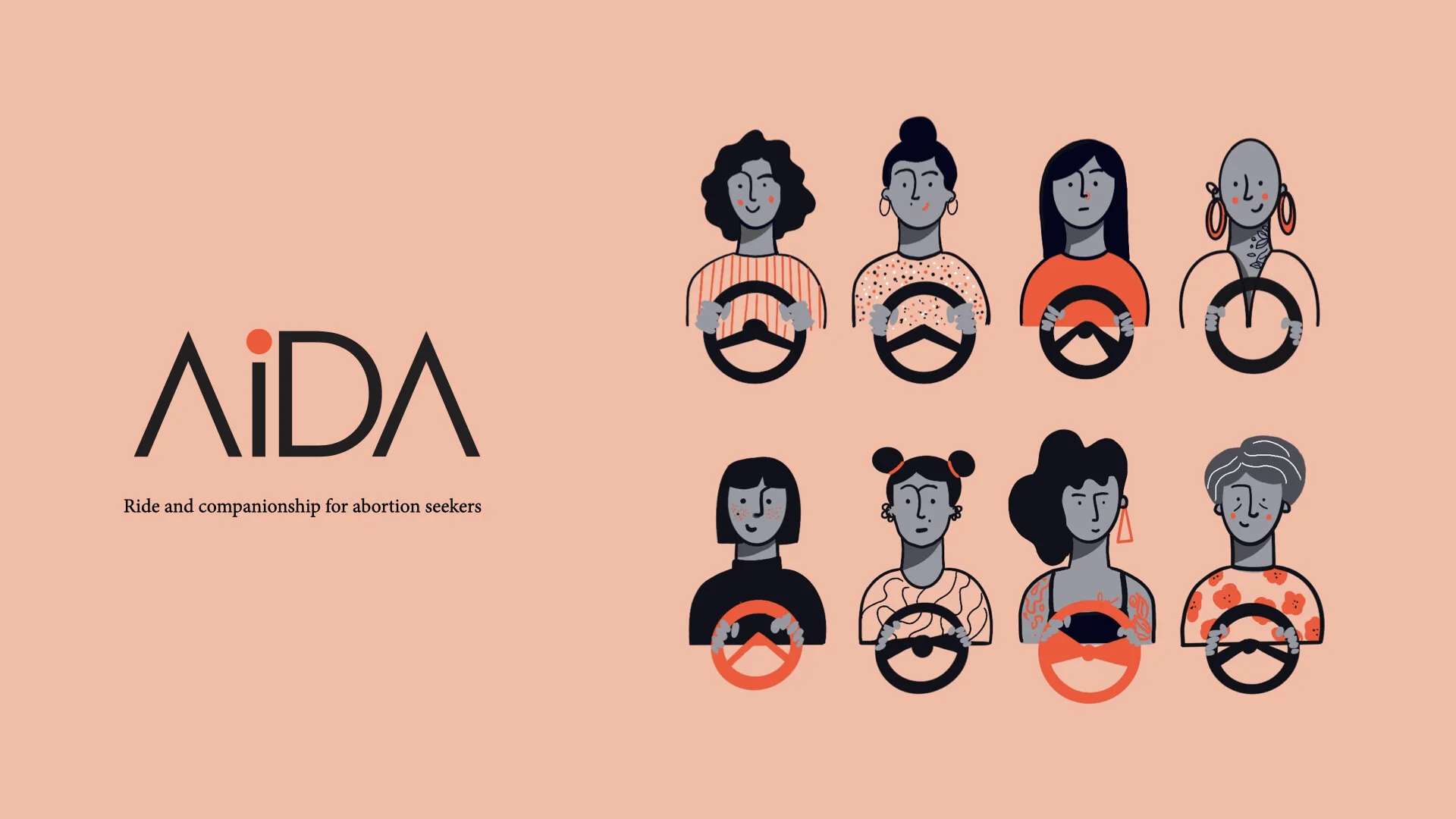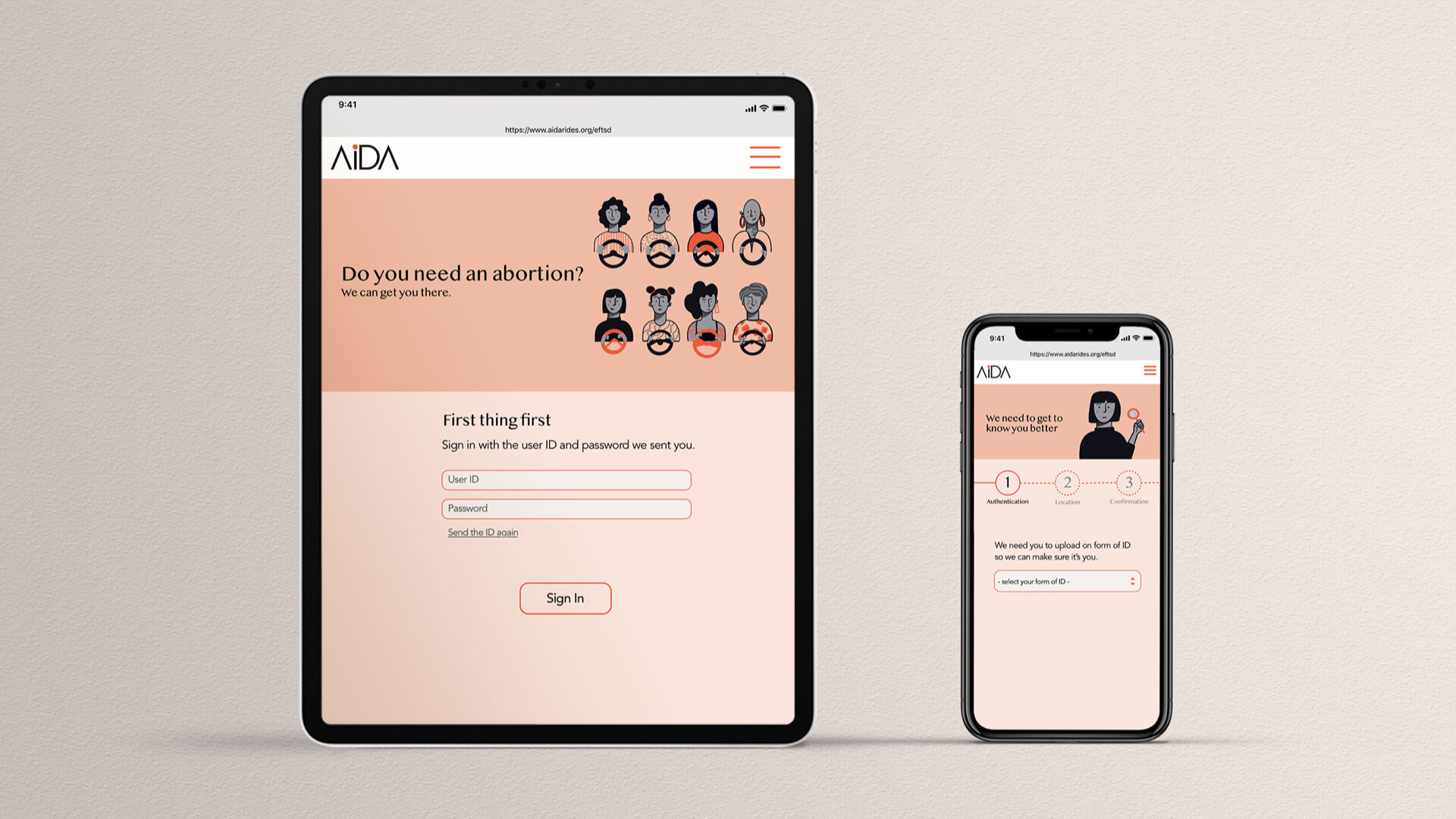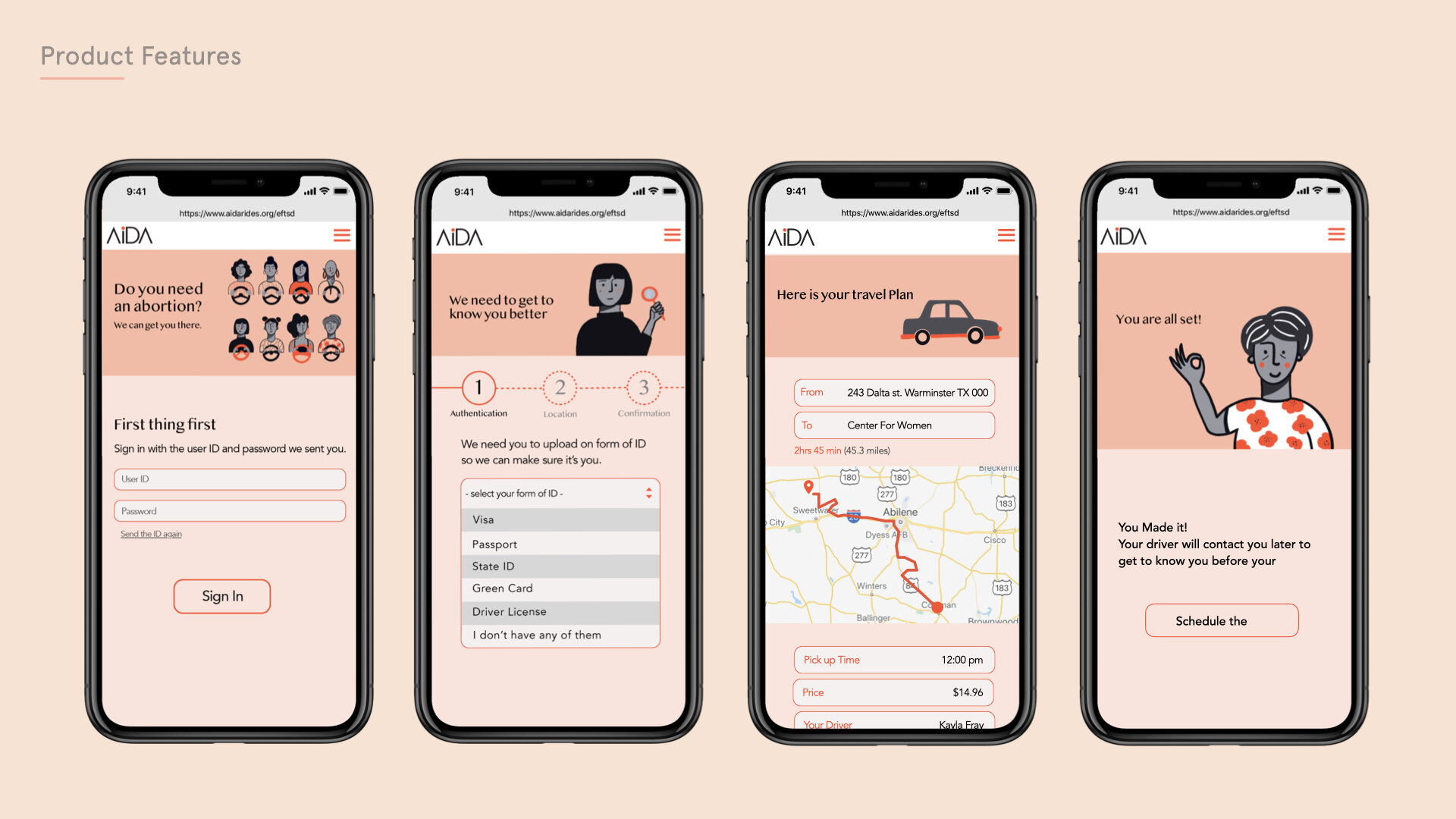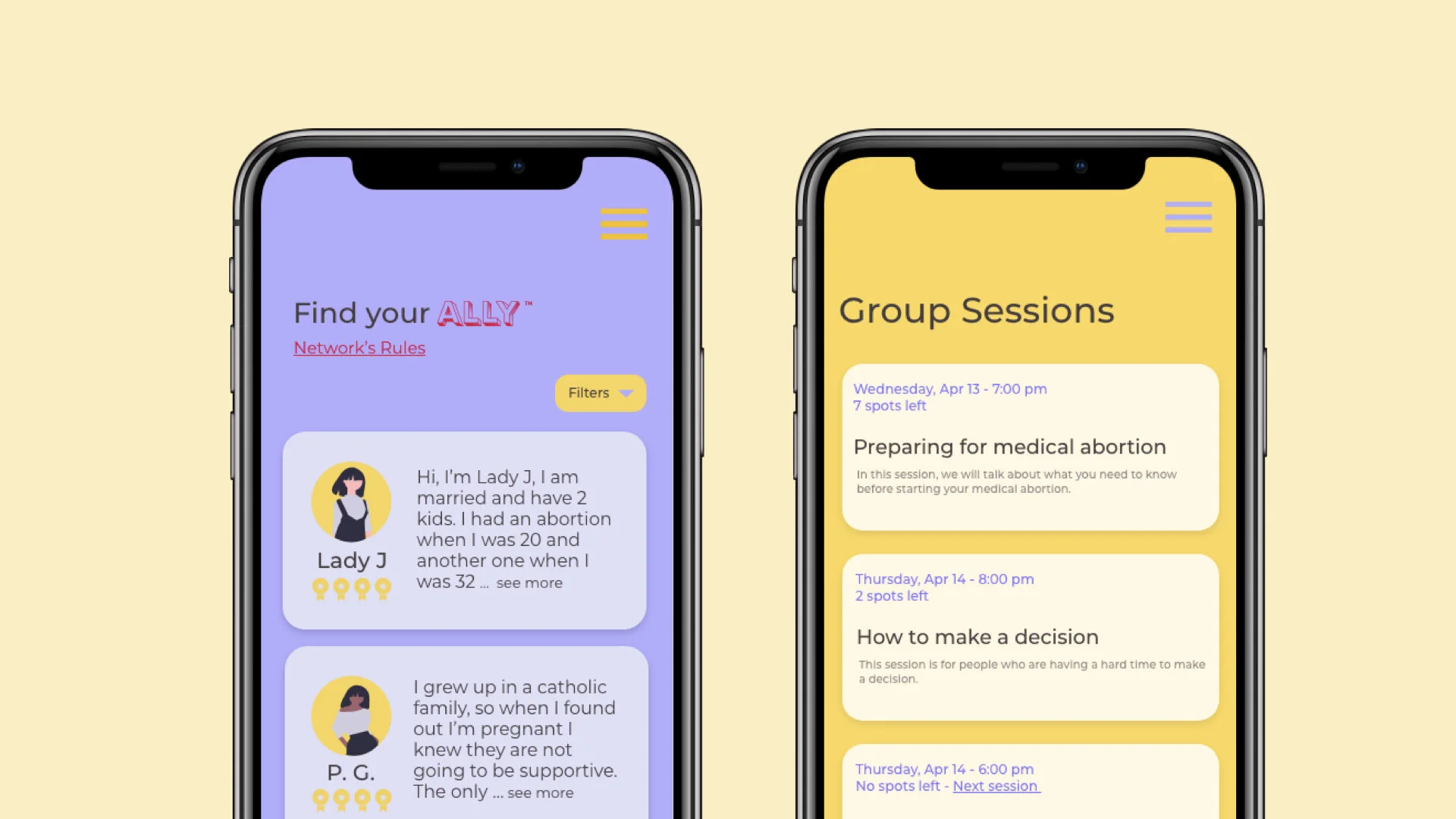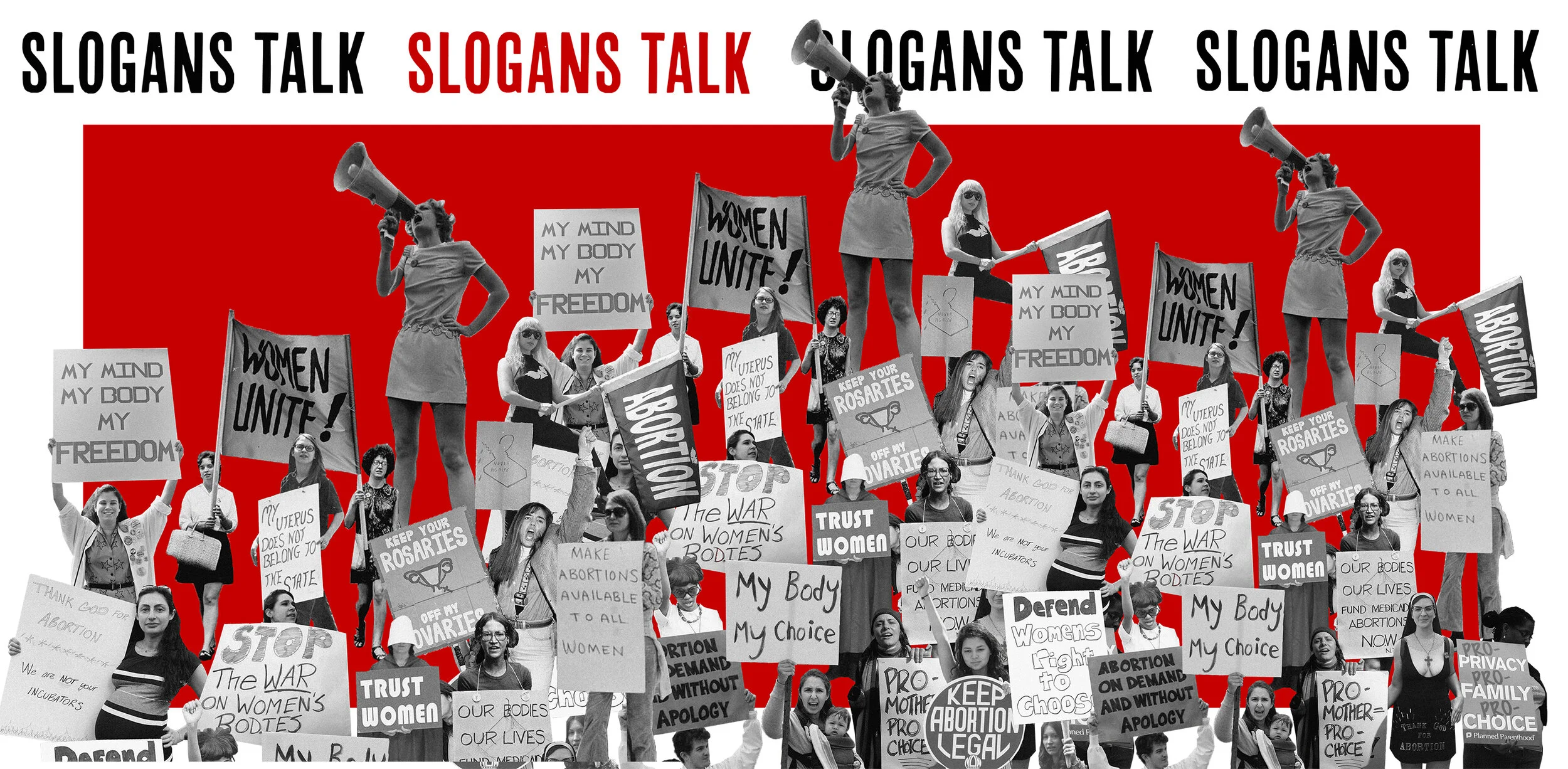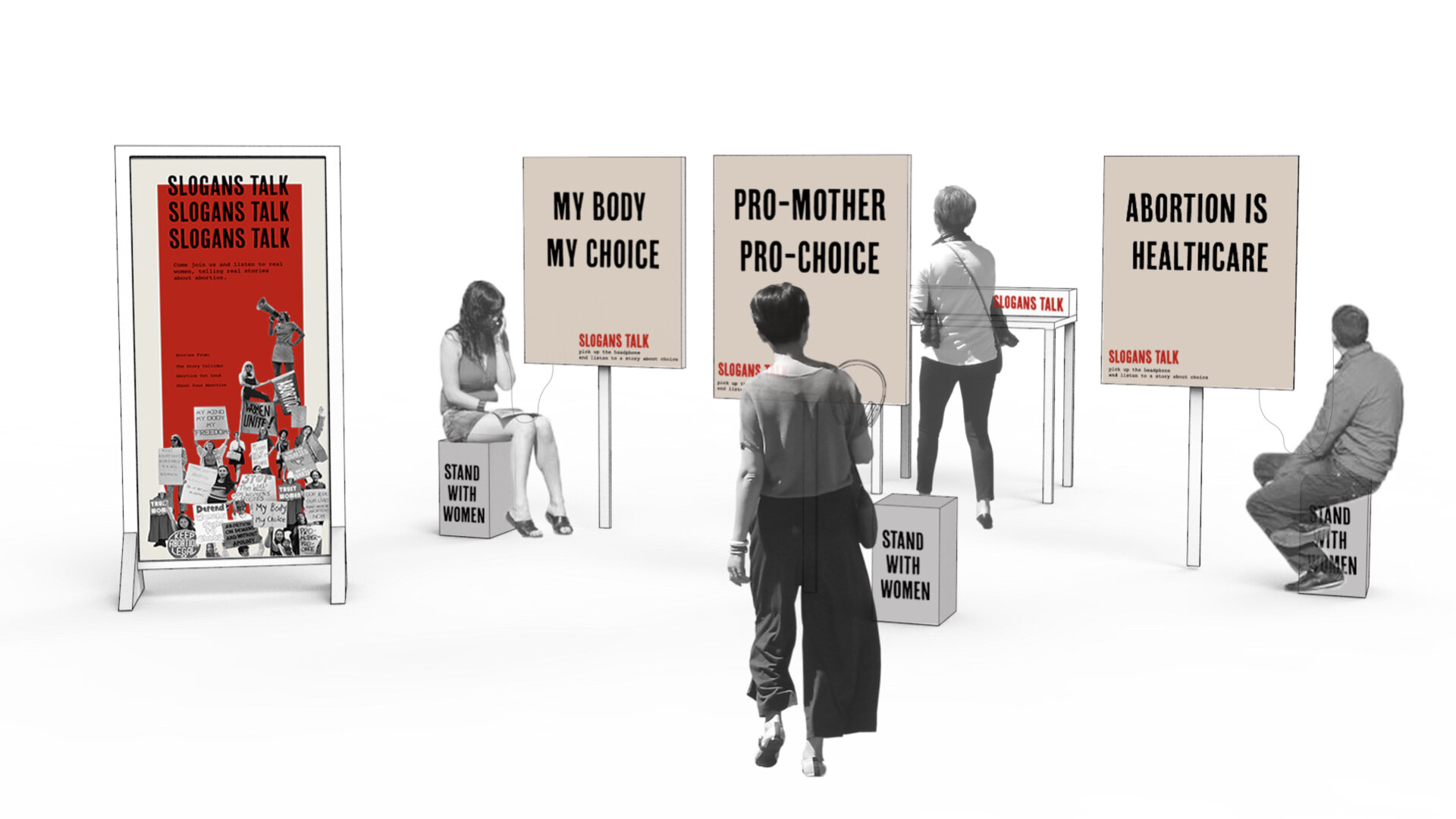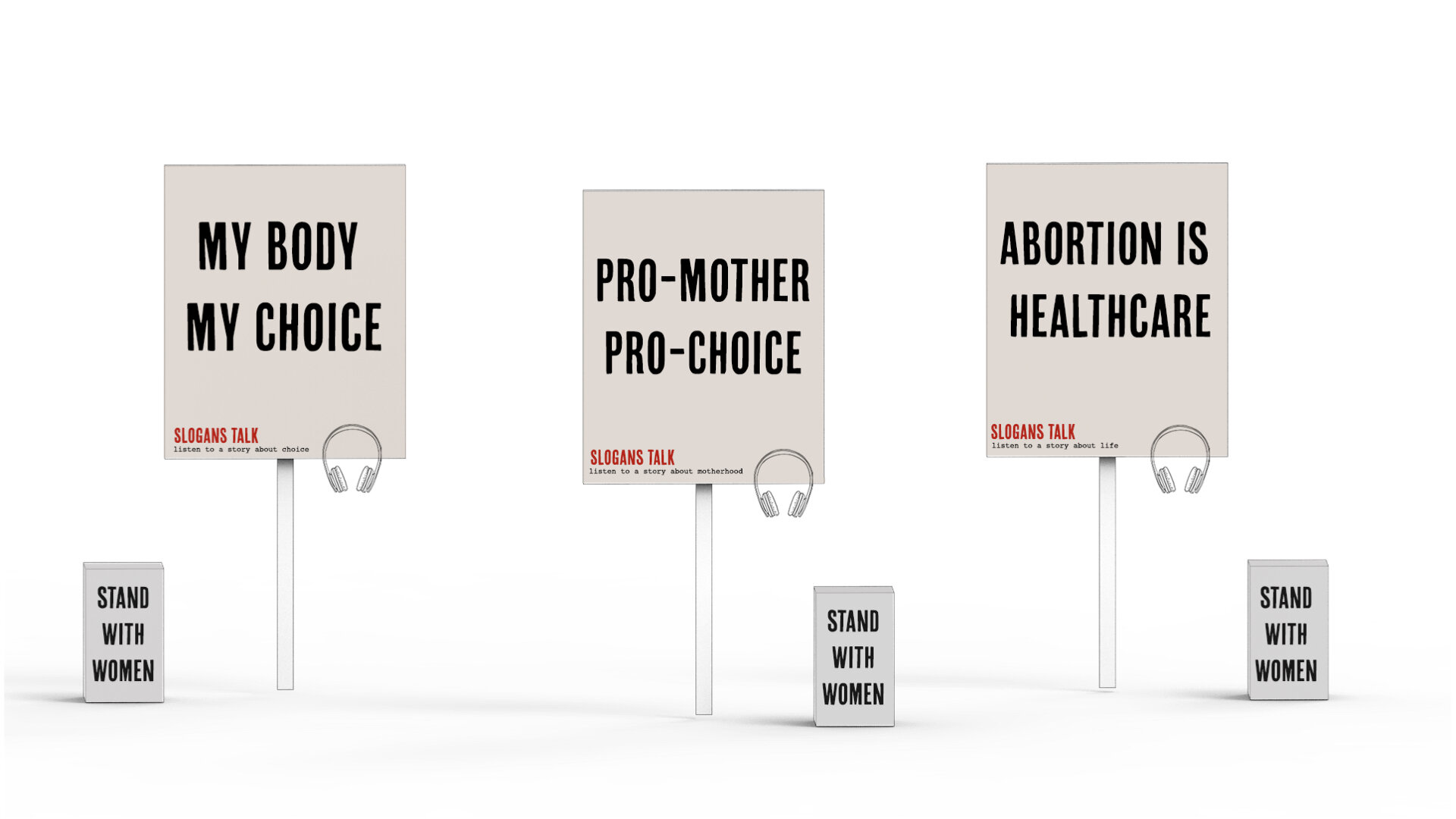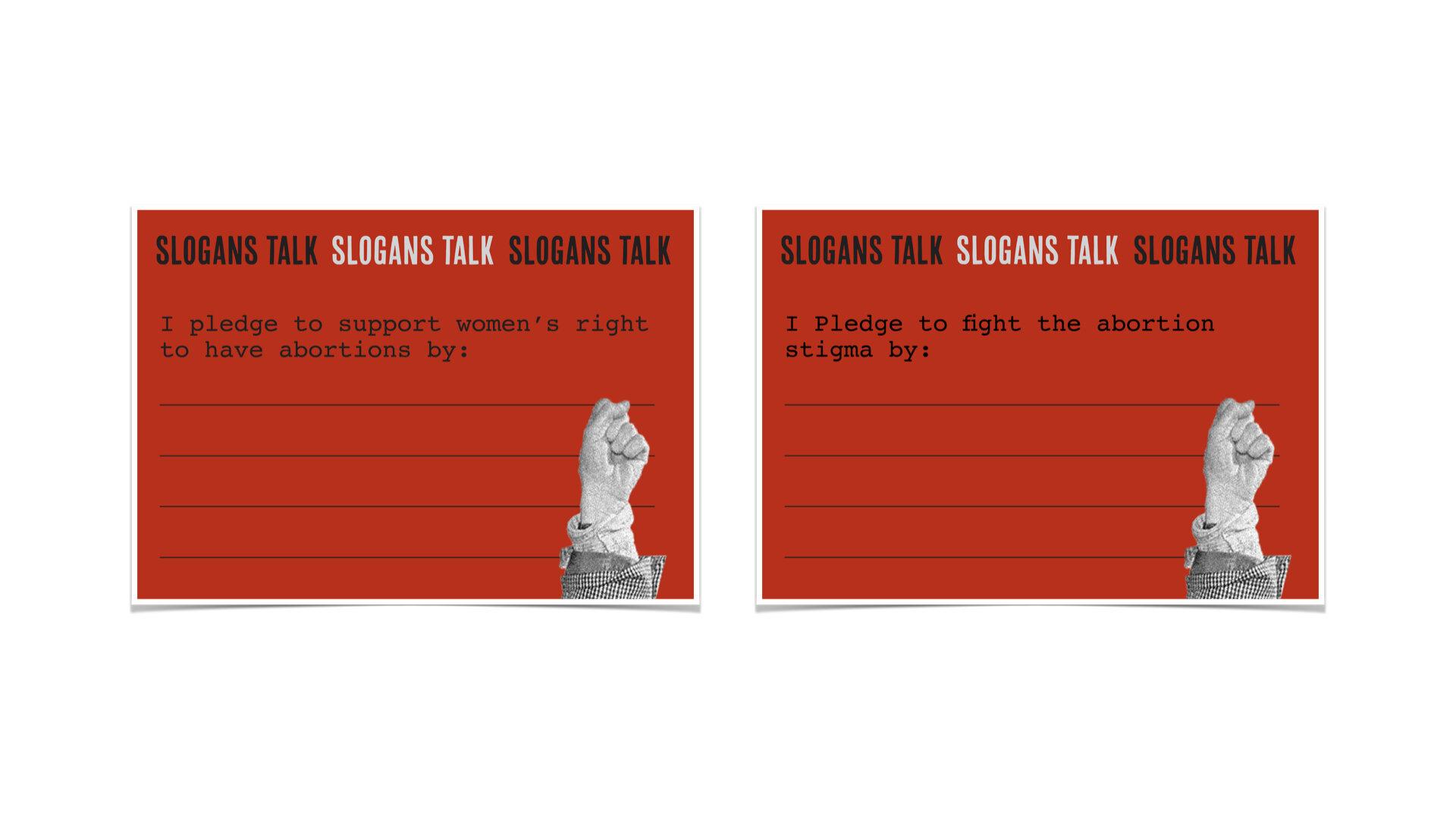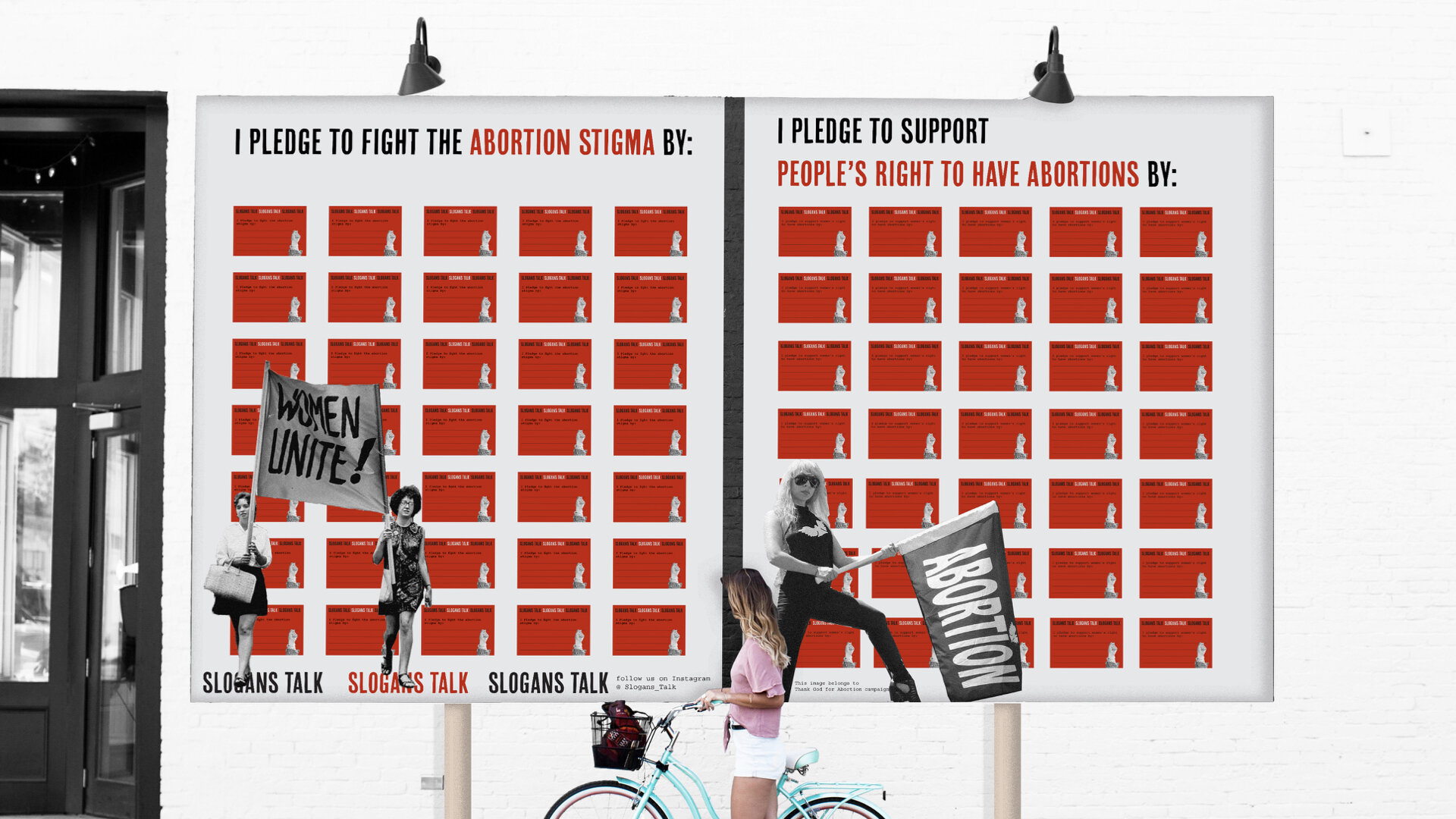BY CHOICE: Designing the Abortion Journey
Pantea Parsa grew up in Iran, where she encountered a confusing dichotomy: traditional Iranian society taught her that motherhood is the ultimate fulfillment for women, but, at home, she absorbed a different perspective. Her mother was an independent and successful woman who refused to be defined only as a mother and a wife. Pantea strived to be like her mother from a young age and ultimately decided that she doesn't want to become a mother in the future. However, should she become pregnant, she couldn't ignore the harsh reality that she would have to find an illegal back-alley abortion. For her thesis, By Choice: Designing the Abortion Journey, Pantea designed a suite of products that address the abortion journey from different lenses—including access, community, activism, and male accountability.
"As a woman who is choosing not to become a mother, I felt responsible to use my design toolkit to address the injustice in the abortion care system."
Co-Creation Workshop
After talking to subject matter experts, Pantea recognized the opportunity to facilitate a conversation about women's day-to-day experiences regarding their reproductive autonomy. To that end, Pantea facilitated a Co-Creation workshop titled "Reproductive Autonomy" and invited a group of women-identifying individuals to share their daily experiences with reproductive health and autonomy. The workshop was structured like the game Snakes and Ladders to bring levity and humor to a serious and vulnerable conversation. In this workshop, participants imagined what full autonomy would be like in their minds and bodies and talked about what supports and hinders it.
The insight that Pantea gained from this workshop was that to better understand women's pain points in the abortion journey, it was crucial to investigate other stakeholders that women are in relationships with, including their intimate partners, workplaces, and the healthcare system.
Frei
Frei is a speculative object in the form of a vessel for watering and fertilizing plants, using a mixture of water and menstrual blood. Blood is generally used as a plant fertilizer since it contains three essential plant nutrients: nitrogen, phosphorus, and potassium. However, Frei nourishes plants and also aims to nurture a woman's relationship with her intimate partner. Blood is only a mediator. Women remind their partner about the shared responsibility of procreation by gifting them Frei and giving them their menstrual blood every month.
Designing Frei started with a question: How might we provoke thoughts about the shared responsibility of procreation and abortion? The aha moment in this project happened when she realized that most women are reminded of their reproductive capacity by their menstrual cycle. With every period, menstrual blood sends a message that tells them they are not pregnant. As a result, women maintain a relationship with their reproductive bodies throughout their life. However, men are more remote from this experience, and communicating with their partners about their menstrual cycle is a reliable way to stay connected with their partners' reproductive health. This project aims to use the menstrual blood as a mediator that helps men stay engaged with their partners' cycle; this helps their partners feel more comfortable communicating any source of anxiety they have in regards to an unintended pregnancy.
Aida
Aida is a web app that enables abortion seekers to book rides with drivers who are trained to be their companion and give them up-to-date information on the way to the clinic. The way it works is that when people make their abortion appointment, the clinic asks them if they need someone to accompany them. If they are interested, the clinic sends them a text with a link to the Aida website along with a User ID to sign in. From there, they are prompted to upload a form of authentication and enter a pickup address. After their trip is confirmed, they can have a phone call with their companion before the appointment to build trust between them and provide information about how to prepare for the upcoming appointment.
Having a companion that helps women navigate the abortion care system is necessary for two primary reasons: First, abortion seekers in several states have to travel far distances to access an abortion clinic. In 2014, 10% traveled 50–100 miles, and 8% traveled more than 100 miles. These distances are not getting shorter under the current administration. The travel costs place a burden on women, considering that abortion is already a costly procedure. In addition, when women make it to clinics, they might receive false information due to mandatory counseling laws that require physicians to give incorrect information to women.
The Ally Network
The Ally Network is a service and a platform that provides women who previously had abortions a role to stay engaged and help others through their abortion. The way it works is that women looking for support at any stage in their abortion can have the option to start a conversation with an Ally, someone who has previously had an abortion and has been trained to answer questions and provide emotional support. They can also participate in online group sessions — an option for people who don't have access to those sessions in real life, or who would like to stay completely anonymous. In these sessions, which are guided by an Ally, they can have conversations about decision making, recovery, etc.
The Ally Network serves an essential purpose: by forming a community around a shared experience, the app aims to eradicate the shame and stigma around abortion. It also enables women to access science-based and objective information, which is particularly vital since online information about abortion is contradicting, and in many cases, inaccurate. The Ally Network's campaign raises awareness about the fact that all women from different backgrounds have abortions, and aims to portray a humanistic face for it.
Slogans Talk
In this highly politicized area, activism plays a vital role in normalizing abortion and raising awareness. However, somewhere along the way, words like "choice" or "life" lost their true meaning, as they became deeply intertwined with politics. In this project, Pantea looked for the roots of Pro-Choice messaging in real abortion stories. Slogans Talk is an experience that mimics a protest and aims to shift the Pro-Choice messaging towards a more complex and nuanced narrative about abortion. It does so by inviting participants to listening to real stories about abortion. After listening to stories, participants are encouraged to proceed to the final stop and take a pledge. People pledge to support abortion rights, fight abortion stigma, and think about actionable plans. After they are done, they drop this pledge into the box in the booth. These pledges will be used to make a bigger sign that will act as a community quilt.
This experience aims to bridge the gap between people's experiences and ultimately create a more empathetic and humanistic way to talk about abortion. The other objective for this experience is to shed light on the fact that protecting abortion rights is not only women's responsibility and to bring a sense of urgency to communities' responsibility to maintain safe and legal access to abortion care.
To learn more about Pantea Parsa's work, take a look at her projects in more detail at panteaparsa.com.













